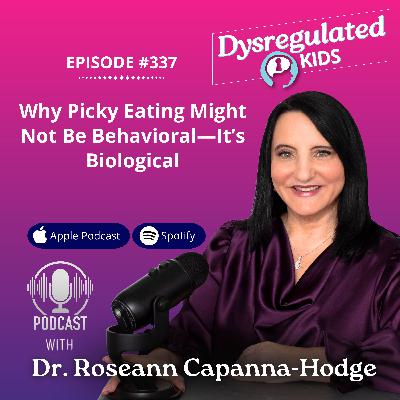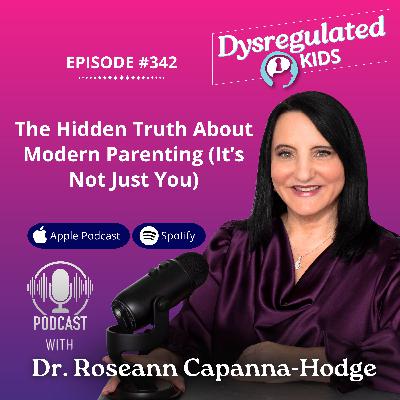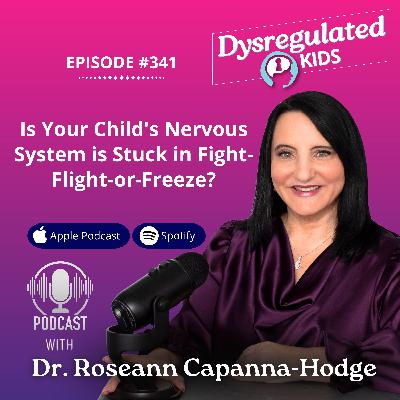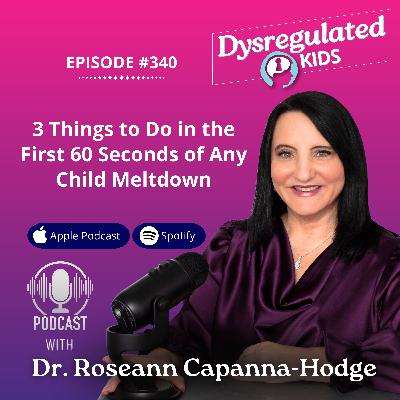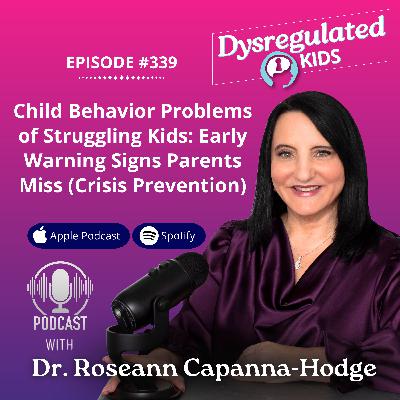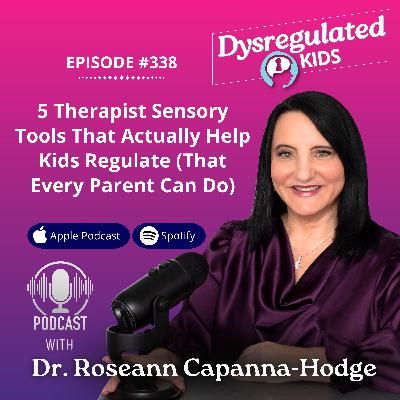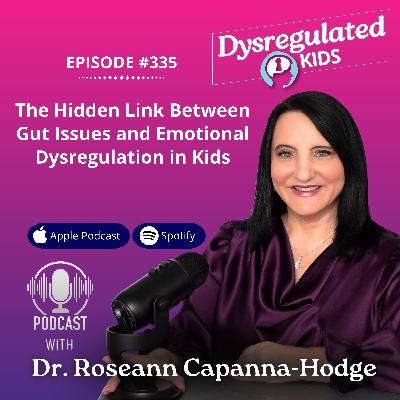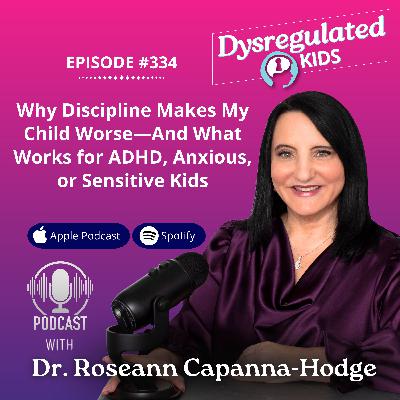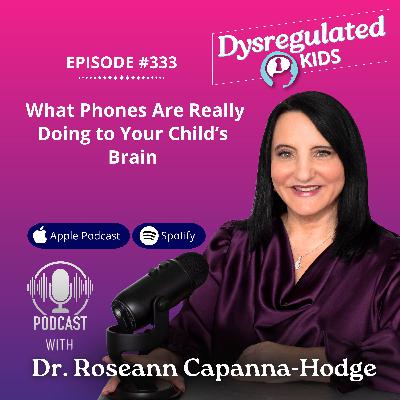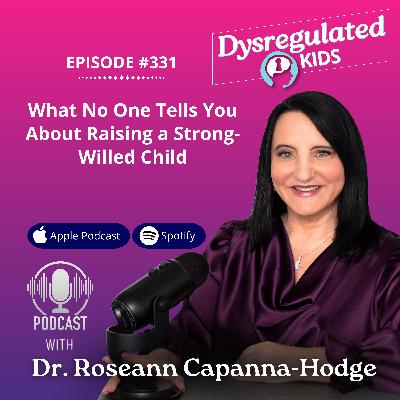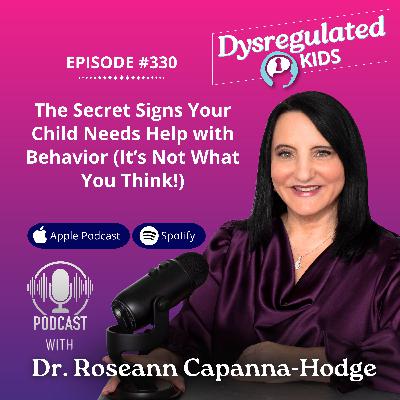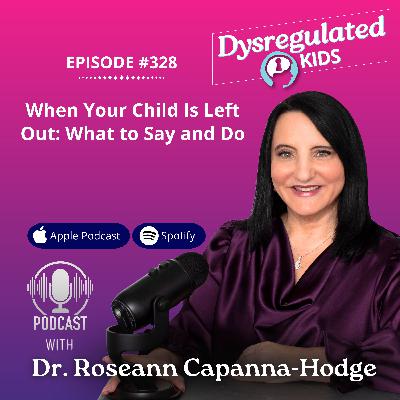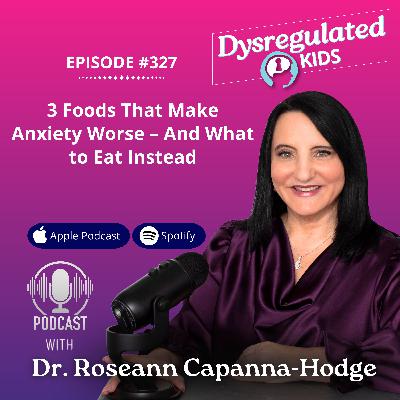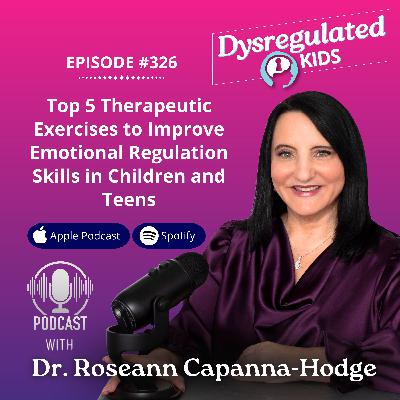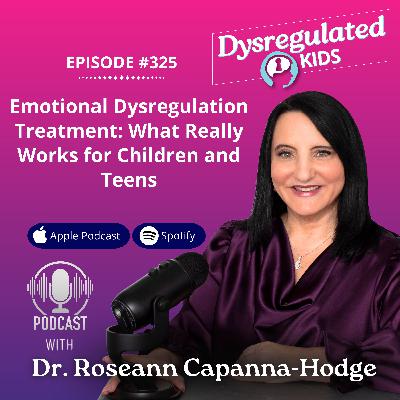337: Why Picky Eating Might Not Be Behavioral—It’s Biological
Description
If every mealtime in your house feels like a showdown—tears, gagging, or flat-out refusal to try a bite—you’re probably exhausted and worried. You’ve bent over backwards with rewards, consequences, and endless negotiations, yet nothing seems to work. I want you to know—you’re not alone.
In this episode, I’ll share why your picky eater’s behavior is more than just “being fussy,” the biological factors that may be driving your child’s picky eating habits—from sensory sensitivities to gut health—and how you can bring more calm (and more healthy foods) back to the dinner table.
Why does my child’s picky eating feel like a constant battle?
If every mealtime feels like tug-of-war, you’re not imagining it. What looks like “bad behavior” is often your child’s biology at work. Many kids aren’t refusing food out of stubbornness—they’re reacting to sensory sensitivities or a stressed nervous system.
When we understand that picky eating is often about dysregulation instead of defiance, everything starts to shift.
Here are a few truths I want you to hold onto:
- Behavior is communication. Food refusal can be your child’s way of saying, “This feels overwhelming.”
- Sensory triggers are real. Textures, smells, and even temperatures can set off strong reactions.
- It’s not bad parenting. Picky eating is a sign of a dysregulated brain—not a reflection of your efforts.
- Power struggles backfire. The more meals feel like a battle, the harder it is for your child to feel safe around food.
Your child isn’t spoiled or dramatic—they’re struggling. And when we calm the nervous system first, we can bring more peace (and variety) back to the table.
When your child is dysregulated, it’s easy to feel helpless.
The Regulation Rescue Kit gives you the scripts and strategies you need to stay grounded and in control.
Become a Dysregulation Insider VIP at www.drroseann.com/newsletter and get your free kit today.
What biological factors cause picky eating in kids?
If your child’s picky eating feels bigger than just “not liking vegetables,” you’re right—biology often plays a huge role.
Research, including twin studies from King’s College London, shows that both genetic factors and environmental factors shape how kids develop food preferences. That means picky eating isn’t about willpower or stubbornness—it’s about what’s happening inside your child’s body and brain.
Common biological roots of picky eating include:
- Gut issues like dysbiosis or inflammation that can shift cravings and digestion
- Nutritional deficiencies (zinc, magnesium, B6) that impact appetite and mood regulation
- Neurodevelopmental disorders such as ADHD, autism, anxiety, or OCD that make eating more restrictive
- Early feeding experiences (reflux, choking, low muscle tone) that create stress around food
- Genetics—studies show identical twins share more picky eating behaviors than fraternal twins
- Connections to other eating disorders such as ARFID, which can overlap with restrictive eating patterns and disordered eating behaviors
- In some cases, body image concerns may show up in older kids or teens, further complicating eating habits
🗣️ “Picky eating in kids isn’t about being spoiled or difficult—it’s biology shaping eating habits. Once you understand the root cause, you can take steps that actually help.” – Dr. Roseann
How can I help my picky eater try new foods without a meltdown?
Parents often ask: “How do I get my child to eat foods they’ve never touched before?” With picky eating, forcing, bribing, or negotiating only makes things worse. The first step isn’t the plate—it’s the nervous system.
Practical strategies for food fussiness:
- Calm the brain first. Use co-regulation or calming activities so mealtime feels safe, not stressful.
- Start tiny. Introduce micro-bites of unfamiliar foods or blend them into favorites like smoothies or soups.
- Notice patterns. Track when your child refuses certain foods—it often reveals sensory triggers or comfort foods.
- Support the gut. Balance with probiotics, fiber, and less inflammatory foods to shift cravings.
- Get expert help. Feeding or occupational therapists can address sensory and oral-motor challenges.
When kids feel safe and regulated, picky eating eases—and their willingness to try new foods naturally grows.
When should I worry that my child’s picky eating is more than just a phase?
Fussy eating can be typical—but extreme food refusal may point to nutrient deficiencies, ARFID (avoidant restrictive food intake disorder), or other eating challenges.
Red flags to watch for:
- Eating fewer than five foods
- Intense fear or panic at meals
- Reliance on the same food daily
- Weight loss, lack of growth, or failure to thrive
- Avoidance due to pain, reflux, or discomfort
If picky eating is impacting health or daily life, it’s time to seek support. This isn’t bad parenting—it’s a sign your child’s nervous system and body need help. When we calm the brain and support gut and nutrient health, mealtime stress can turn into mealtime success.
Tired of not knowing what’s really going on with your child?
The Solution Matcher gives you a personalized recommendation based on your child’s behavior, not just a label.
It’s free, takes just a few minutes, and shows you the best next step.
Go to www.drroseann.com/help
Need help calming your child’s brain before mealtimes—or anytime? Check out Quick Calm—my step-by-step, science-backed strategies to bring more peace (and easier eating, sleeping, and learning) into your home.
FAQs
Can picky eating be more than just a phase?
Yes. While some food fussiness is normal, extreme food refusal may point to deeper issues like ARFID, nutrient deficiencies, or anxiety. If your child only eats a handful of foods or avoids whole groups, it’s time to look deeper.
Is picky eating linked to the brain?
Absolutely. A dysregulated brain can make new foods feel overwhelming. By supporting nervous system regulation, kids can shift from stress around meals to greater flexibility with food.
How do I know if my child needs help with picky eating?
If eating struggles affect growth, nutrition, or family life, it’s time to seek support. Early intervention helps calm the brain, address root causes, and create positive mealtime experiences.

